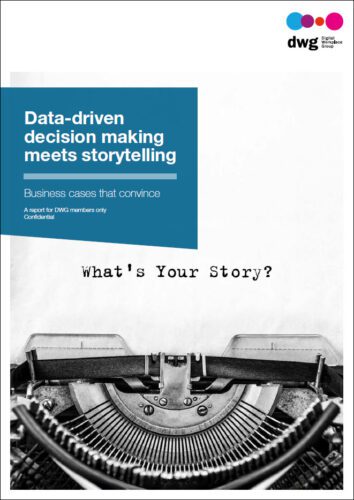The AI-first CEO: a new leadership archetype for a new age

Dear Diary,
Here is today’s ponderable: is an AI-first CEO a new leadership archetype for a new age?
Some months ago, DWG (Digital Workplace Group) introduced one such leader via Paul Miller’s Rewilding Work.1 Her name is Pamela Maynard, and she is known as the ‘AI-first CEO’ at Avanade. Serving as a pundit for this episode, I was left wondering whether CEOs like Maynard represent a new leadership archetype. The question prompted me to embark on a journey of discovery. For some months now, I have been scanning industry publications, LinkedIn articles and various media.
With the help of Flipboard, I assembled quite a compendium of additional real-world examples. Here is a starter for 10 on what it takes to excel as an AI-first CEO:
Technical expertise and strategic vision
AI-first CEOs possess a deep understanding of AI technologies and their potential applications. They are visionaries who can identify opportunities for AI to create value and growth in their businesses. And they do so with purpose and human-centred values.
Pamela Maynard, CEO of Avanade, exemplifies this quality. Under her leadership, Avanade, a leading digital innovator in the Microsoft ecosystem, has made significant advancements in AI and digital transformation, creating innovative solutions for clients across various industries. Maynard has also set a tone for how Avanade and its clients will embrace, adopt and innovate with AI.2
Purpose and value that inspire
AI-first CEOs are skilled at inspiring and motivating their teams to develop and implement AI solutions. They understand the broader business context and can integrate AI into their organization’s operations because their people see purpose and value.
Satya Nadella, Chairman and CEO of Microsoft, exemplifies these qualities. Nadella has championed Microsoft’s AI strategy, with a focus on democratizing AI and making it accessible to businesses of all sizes. Microsoft has since experienced significant growth in its cloud computing and AI services.3,4
Ethics and governance
As AI becomes more prevalent, CEOs must prioritize ethical considerations and establish robust governance frameworks. This includes developing guidelines for responsible AI use, conducting impact assessments and ensuring transparency in AI-driven decision-making.
Sundar Pichai of Google has been vocal about the need for ethical AI development, implementing AI principles across Alphabet’s companies.5
Adaptability and communication skills
In the rapidly evolving AI landscape, successful AI-first CEOs stay ahead of the curve and can clearly communicate the benefits of AI to stakeholders.
Ginni Rometty, former CEO of IBM (International Business Machines), was instrumental in shifting the company’s focus towards AI and cloud computing. Rometty’s ability to articulate the value of AI to clients and investors played a crucial role in IBM’s transformation into a leading AI solutions provider.6
Agile thinking and adaptability
The AI landscape is constantly evolving, requiring leaders to be agile and adaptable. Successful AI-first CEOs embrace change, encourage experimentation and are willing to pivot strategies based on new developments.
Jeff Bezos‘ leadership at Amazon exemplifies this trait, with the company consistently at the forefront of AI adoption in e-commerce and cloud services.7
Data-driven champions
AI-first leadership requires a deep appreciation for data quality, management and analysis. CEOs must champion a data-driven culture, ensuring that their organizations have the necessary infrastructure and processes to leverage data effectively.
Marc Benioff of Salesforce has been instrumental in positioning the company as a leader in AI-powered customer relationship management by emphasizing the importance of data in driving AI capabilities.8,9
Balancing AI and human skills
While championing AI adoption, effective leaders also understand the unique value of human skills such as creativity, empathy, trust and strategic thinking. They strive to find the right balance between AI automation and human input, ensuring that AI augments rather than replaces human capabilities.
Satya Nadella’s ‘AI for Good’ initiatives at Microsoft demonstrate this balance, using AI to solve global challenges while emphasizing the importance of human collaboration.4
Continuous learners and naturally curious
AI-first CEOs are committed to continuous learning. They stay abreast of new developments and are willing to pivot their strategies as needed. The most successful and enduring leaders around us are those who are naturally curious; those who are life-long students of their craft.10 This is my personal reflection and contribution, which has been informed by various conversations with the many inspiring guests who’ve appeared on our Digital Workplace Impact podcast.
What’s more exciting is that AI has the potential to challenge us to become even more curious: not just to ask more questions but to ask the right ones as a way of unlocking solutions and working even more opportunistically.
Empowering talent
AI-first CEOs recognize the importance of nurturing talent and fostering a culture of continuous learning. They invest in upskilling programmes and create environments that encourage innovation and experimentation. They see these things in combination as gifts of empowerment for an AI-driven future.
Pamela Maynard has been a strong advocate for AI learning and workforce development, implementing initiatives to prepare Avanade employees. In fact, Avanade has its own School of AI, which is designed to enhance AI literacy among tech experts and other professionals alike. Its educational journeys range from hands-on skills to courses on generative and responsible AI.2
The wild card effect
There is also Mika, the world’s first AI CEO. Appointed by a Polish drinks company, Dictador, Mika is designed to lead critical projects and drive growth. While it is too early to evaluate Mika’s successes fully, this appointment highlights the increasing role of AI in business leadership.11 It has also allowed Dictador to position itself as innovative, adaptive, forward-thinking and willing to go where no one else has gone before.12
Mika’s appointment is equally an important reminder that AI is a transformative force that is actively shaping a new world around us.
Real-world examples
The AI-first CEO is a new archetype, embodying the qualities needed to lead in an era of intelligent technology. By combining visionary leadership with technological acumen, strategic implementation, ethical considerations, cultural transformation, continuous learning and more, these leaders are harnessing their power to create innovative solutions and drive growth. They are also setting up their organizations and their people for success in the AI-driven future.
Embracing AI is not without its challenges, but for those willing to lead the charge, the rewards can be substantial. The AI-first CEO is at the forefront of a revolution, charting a course for others to follow and redefining what it means to be a leader well into the next decade.
What next?
- Is your organization ready for generation AI?
Thinking about what kind of leadership is needed in AI-first organizations leads to a broader question; namely: “Is your organization ready for generative AI? This may be a tough question to answer on your own. DWG has been developing an AI readiness assessment. If you’d like to learn more about it, read the latest edition of DWG Vantage Point: AI readiness – A strategic imperative.
- What have I missed?
This AI-first leadership archetype is still emerging for me. Let’s round out the picture together. Share additional real-world examples and help build out this archetype in the comments section of this newsletter.
N.B. For all references and links please visit: https://digitalworkplacegroup.com/the-ai-first-ceo-a-new-leadership-archetype-for-a-new-age/“
Categorised in: → AI CEO, → Diary of a She-E-O, Artificial intelligence and automation, Business leadership

